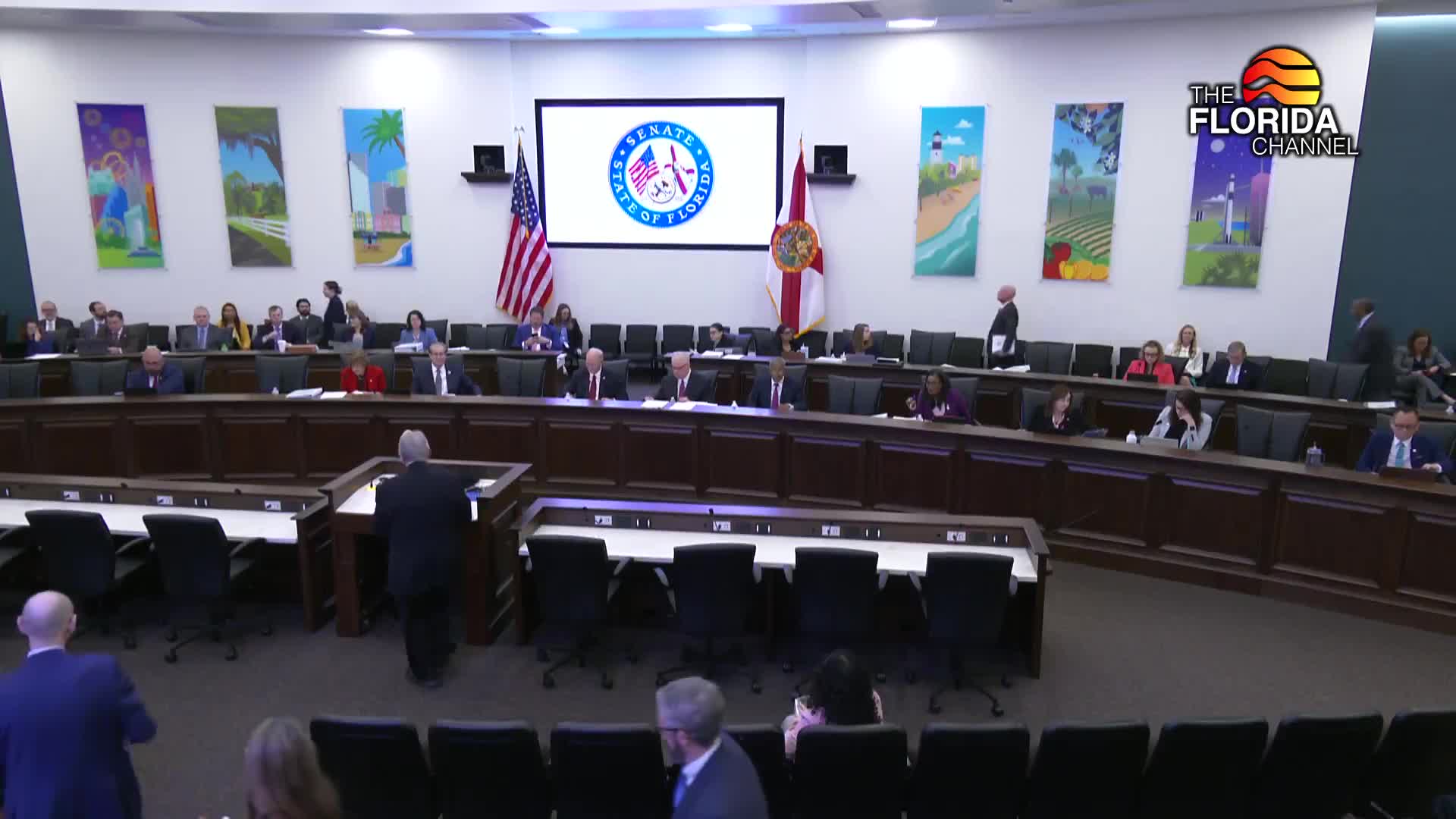Article not found
This article is no longer available. But don't worry—we've gathered other articles that discuss the same topic.
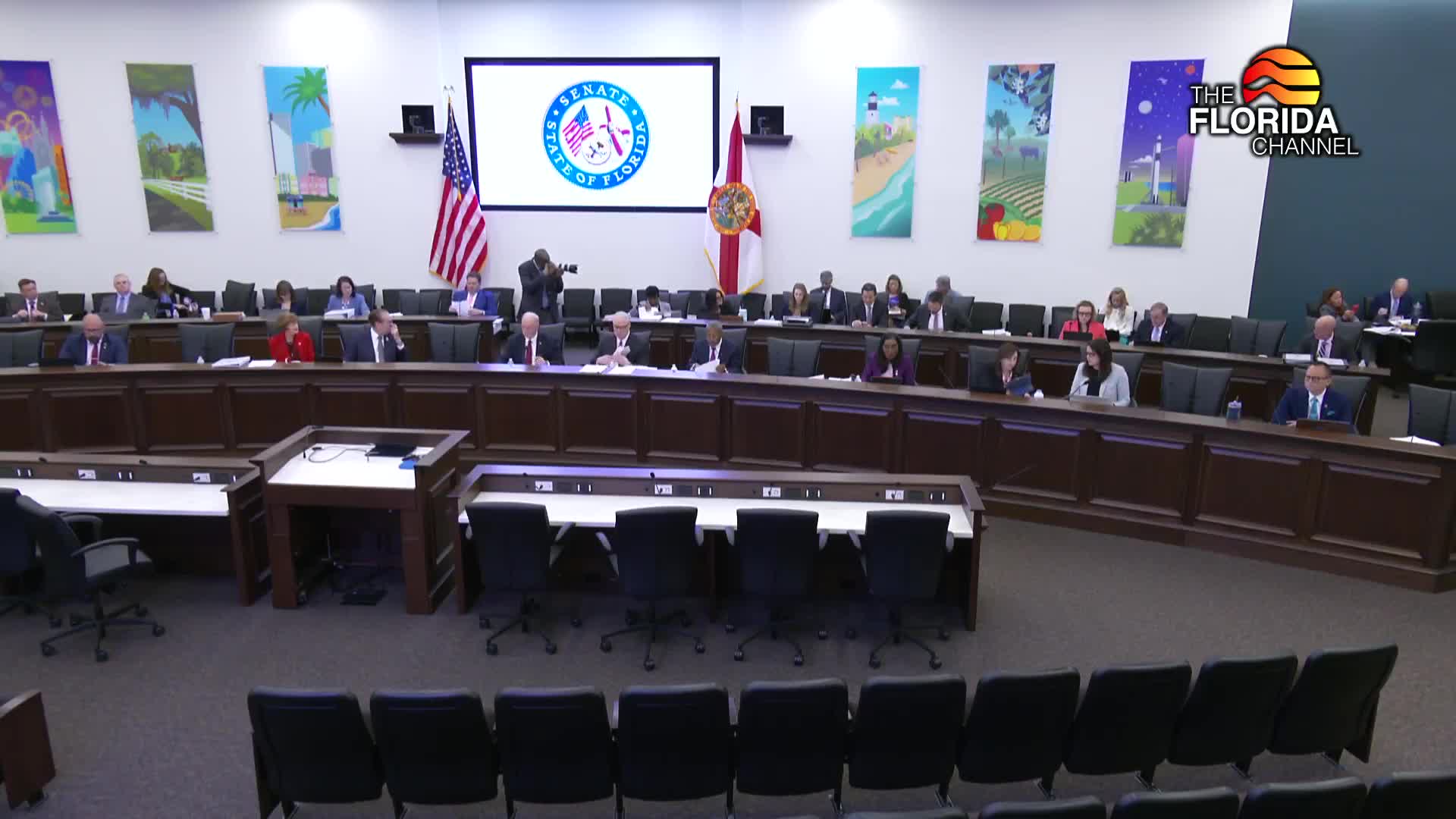
Committee advances broad water-management bill with Everglades funding and local referendum protections
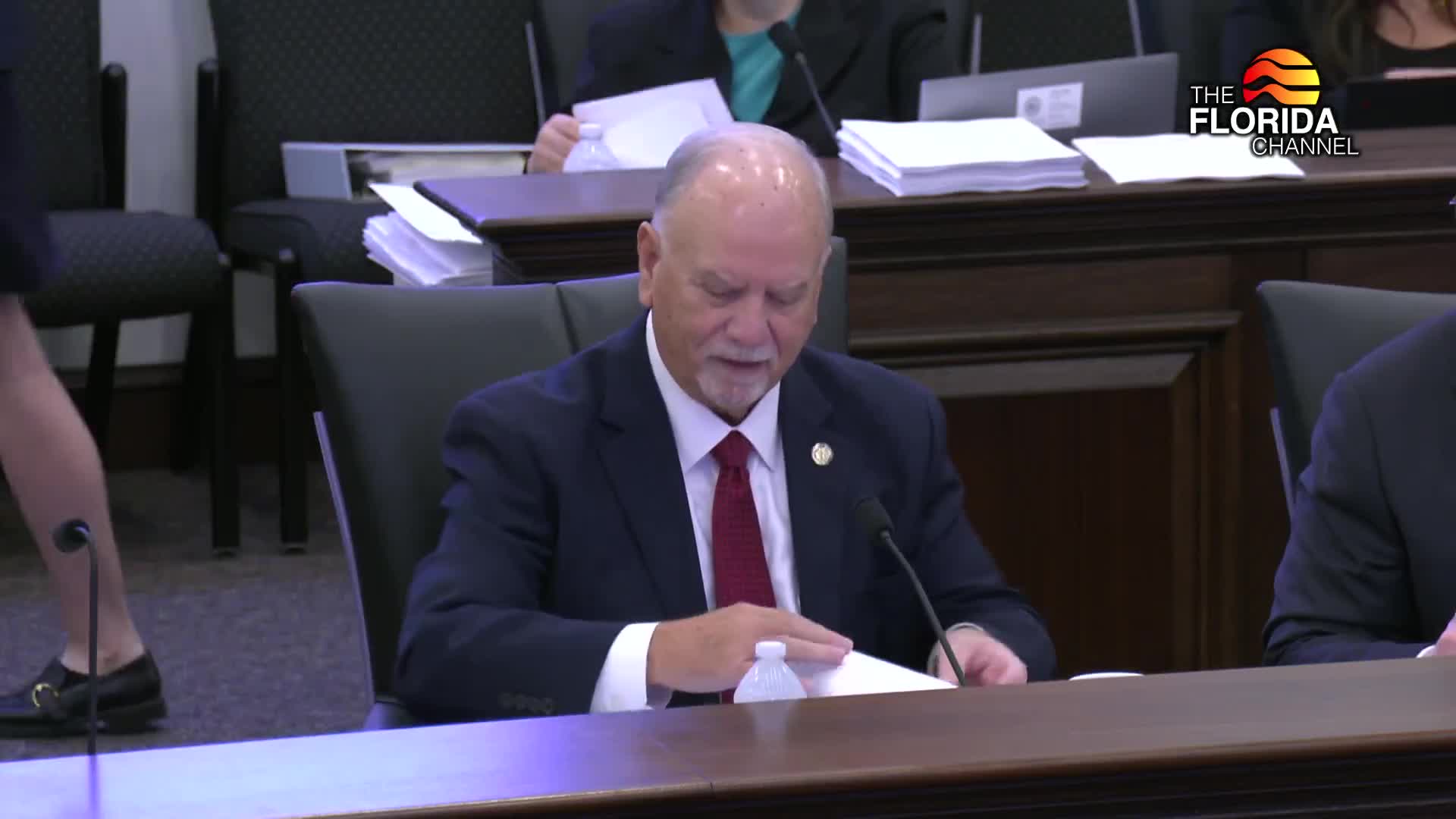
Senate Appropriations Committee adopts $117.4 billion general appropriations bill, advances implementing measures
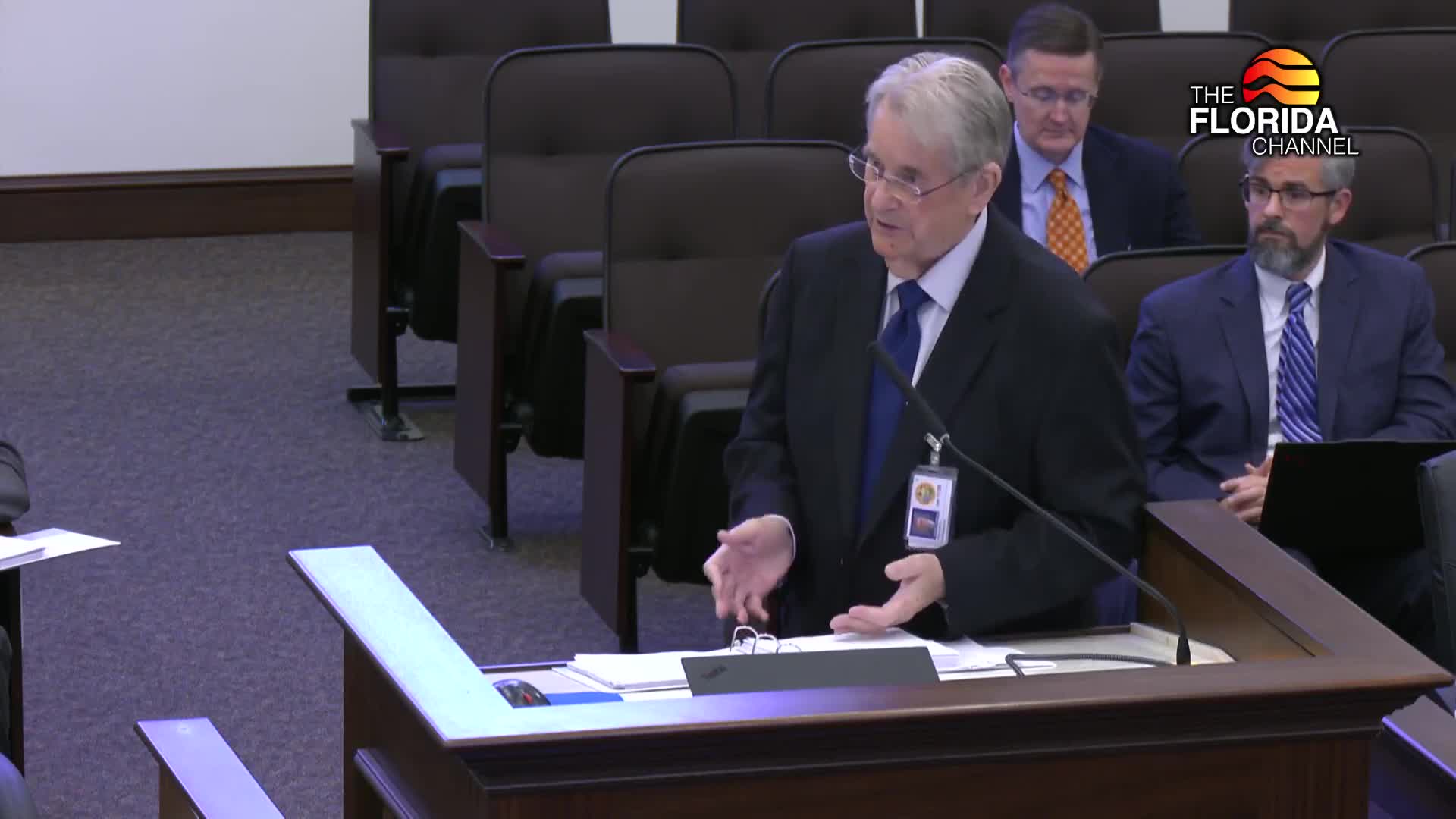
Senate committee forwards nursing home quality bill that would expand oversight, surveys and reporting
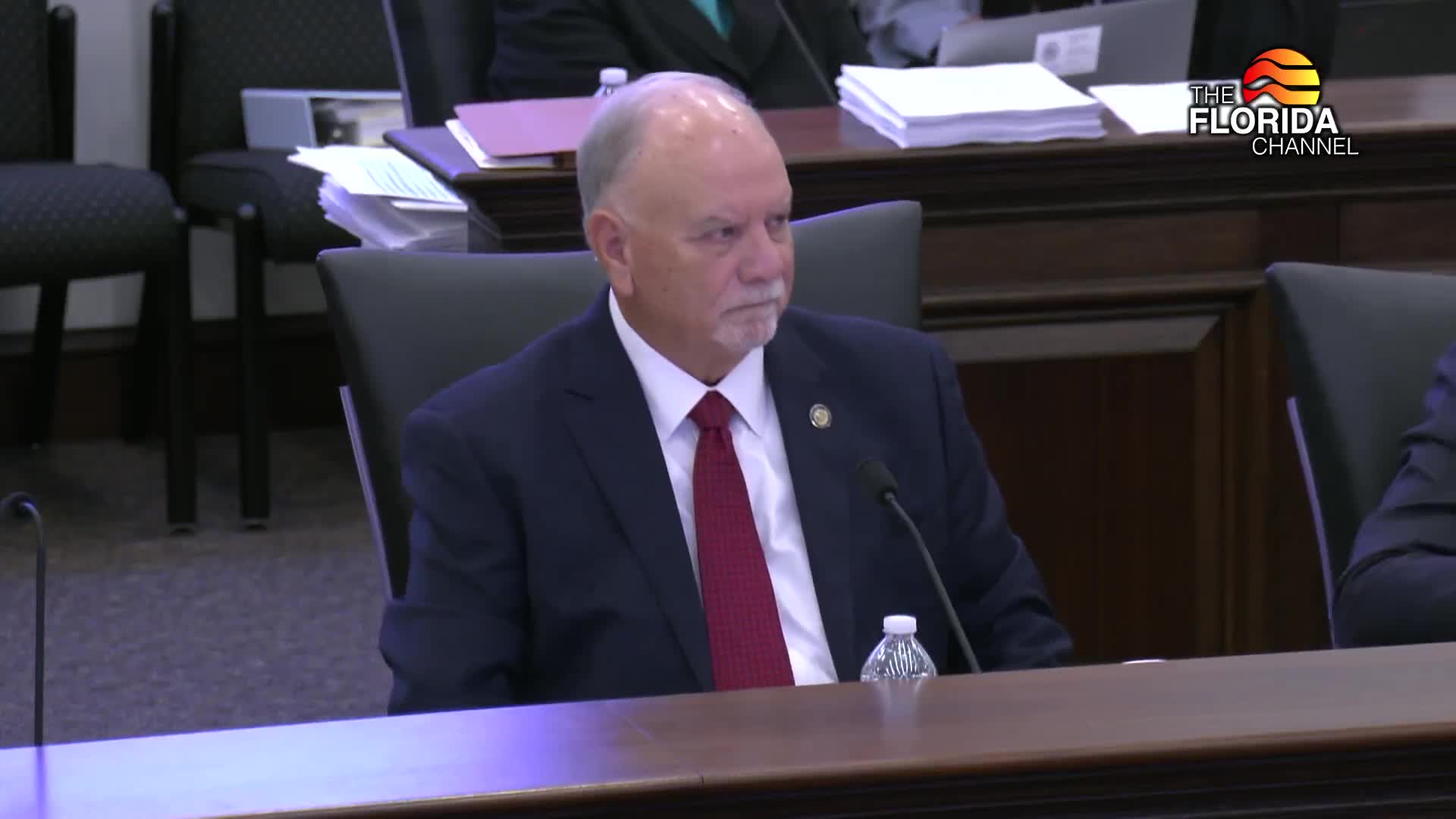
Senate committee advances Tristan Murphy Act to expand pretrial mental health diversion and behavioral health data reporting
